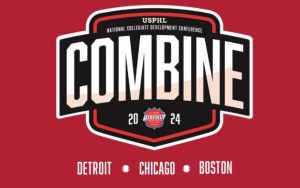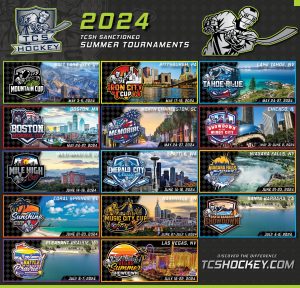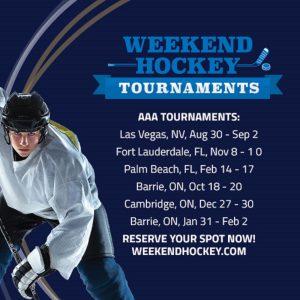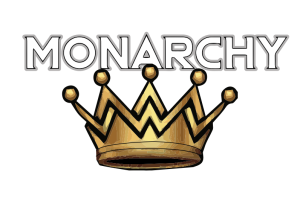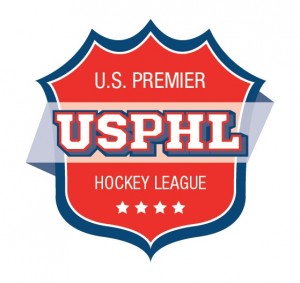Hall’s call a homecoming for Blake

Los Angeles Kings assistant general manager Rob Blake will make another special trip back to Ontario next month. There will be family and friends to see but the focus will be on his well-deserved induction into the Hockey Hall of Fame.
The 20-year veteran spent 14 of those seasons with the Kings and the last two with the San Jose Sharks. He served as captain for both franchises (a first) and his list of career achievements is lengthy, including winning a Stanley Cup in 2001 with Colorado and becoming the first King to capture the Norris Trophy (in 1998). A three-time Olympian, Blake also had a knack for clutch goals – his 41 game-winning goals are sixth-most all-time by a defenseman and his 136 power-play tallies are third-most. He played 1,270 regular-season games (21st), scoring 777 points (18th).
But any discussion about the Simcoe, Ontario, native is incomplete without a mention of his booming shot and his trademark hip checks. Fortunately, California Rubber Magazine editor Chris Bayee avoided both during a recent interview.
Chris Bayee: What were some of your favorite memories from your pro career?
Rob Blake: The very first game for sure was something I’ll always remember. It was against Winnipeg (on March 27, 1990). We lost (to end the season) at Bowling Green and I flew out the next day. I didn’t have any time to think. I landed at night, walked in in the morning to the Great Western Forum. Had a jersey and a stall and was in a game that night. That’s the one part that will stick out for sure.
I think playing the conference finals in Toronto in ’93, out of that whole series probably the Game 7 in Toronto just because I grew up around that area. The Maple Leafs were huge for me growing up. To play them in a Game 7 with Wayne Gretzky on your team, that game will stick out forever. … In the ’90s, the spectacle and everything that was happening with Mr. (Bruce) McNall in L.A. at the time, it was big.
Then I’d have to say Game 7 against New Jersey when I was with Colorado in the Stanley Cup Final (in 2001). If I had to pick three games that summed up everything, those were three of the most memorable.
CB: You’ve been involved with youth hockey. Do you take pride in the growth of the sport from when you arrived in LA to this point?
RB: When I came here there was one team in CA. You play a decade through there with the height of Wayne Gretzky and Mr. McNall and the excitement around the Kings and then are teams in Anaheim and San Jose, and then you get one in Phoenix. That’s a big part of it.
The other aspect is the youth hockey. I remember coming here 25 years ago and practicing out of (since closed) Culver City and now it’s the Toyota Sports Center with three sheets of ice and it’s busy every night.
I help out with the Jr. Kings and there’s over 500 kids in the travel hockey program. The growth is astonishing. And now you’re starting to see some of them coming into NHL now in Emerson Etem (with Anaheim), Beau Bennett (with Pittsburgh), Rocco Grimaldi (with Florida). You’re starting to see these players who watched in the 90s go full circle and play in the league.
CB: Given your background before moving into an executive role with the Kings, which is harder coaching a youth hockey team or disciplining NHL players?
RB: Coaching youth hockey (laughs).
I loved being on the ice with the kids. There’s a lot of other stuff that goes with youth hockey with parents and things I wasn’t as fond of. But I like the aspect of helping these kids and seeing how eager they are to learn. I love sitting in the dressing room with them before we go out for practice and they’re asking questions about the NHL. It’s great we can sit there and relate and answer their questions. To them that’s their ultimate goal.
CB: How did experience gained from your playing career help you transition to the league office and now the Kings’ front office?
RB: With the league office, doing the player safety, by playing that many years in the NHL and understanding all different aspects of the game, different situations, understanding how different hits take place, very rarely do I think there was direct intent to injure. There’s the odd case. For the most part, guys are playing the game. Things happen quick, some times you’re a little out of control and you get that. That part I had to relate to the player safety, and that’s why Brendan had us together doing that.
When I went into management here, the biggest thing for me is we rate players on a daily basis, not only on our team but we have to do it on other teams so you know when trade prospects or different things come up.
To me, that’s what I did my whole career is rate players. I had to know everybody I was playing against, what their tendencies were. I had to know which ones were on the ice at which times and different things. That part of it transitioned fairly easy in the management aspect because basically I’d done that for 20 years at the pro level.
The business aspect of it, the structure part, putting things on the computer, entering reports and all that, I didn’t have to do all that, that’s what I had to learn. But the basic knowledge about those reports and what I see, I’ve done that for 20 years.
CB: From your observations on the ice and now off the ice, why are the Kings at the pinnacle of the sport?
RB: Mostly what (President and General Manager) Dean (Lombardi) has been able to develop. If you look at the core of the Kings, it’s now a winning core. The core I speak of is (Anze) Kopitar, (Dustin) Brown, (Drew) Doughty, (Mike) Richards, (Jeff) Carter and (Jonathan) Quick. The guys who make up the core of this team have two Stanley Cups; they have been in that winning atmosphere. They’re all fairly young. The majority of that core is under 30 years old. They’ve understood what the success is.
Now when you’re able to add pieces to it, which you saw last year at the deadline a Marian Gaborik. You could bring him in, he fits into that organization, into that core group and helps them succeed. And these guys are more than willing to have these guys come along. There’s not an ounce of that selfishness, where we don’t know if we need another star we’ve got enough here. They want whatever will make the team better.
It started from Dean on down to Darryl Sutter to the players.
It’s rare because it’s hard to keep together. There have to be certain sacrifices made by those players, but you also have the sense on who you can bring in. Who will fit in, be very protective of the room. Dean stressed that from Day 1 when I got here. How that room is so tight and we have to protect that. Ultimately that leads to success.
CB: When you look back, is there a legacy you hope you have?
RB: I’m not sure. For me, it was just playing. I’m kind of glad I didn’t understand a lot when I came in. Like I said, I came from Bowling Green, was thrown right into it. Just had to play. As I got older I understood the things that went into it. Part of the reason I was able to play the game 20-plus years was I understood and respected what teammates were all about.
I think a lot of that had to do with my upbringing. I grew up on a farm with brothers and sisters, and each year we had to do different things together to help the farm. Part of that translated into when I got to the NHL level about understanding and respect I had for teammates. As far as a legacy, being a good teammate was one of the things I know I had to accomplish and hopefully did over those years.

